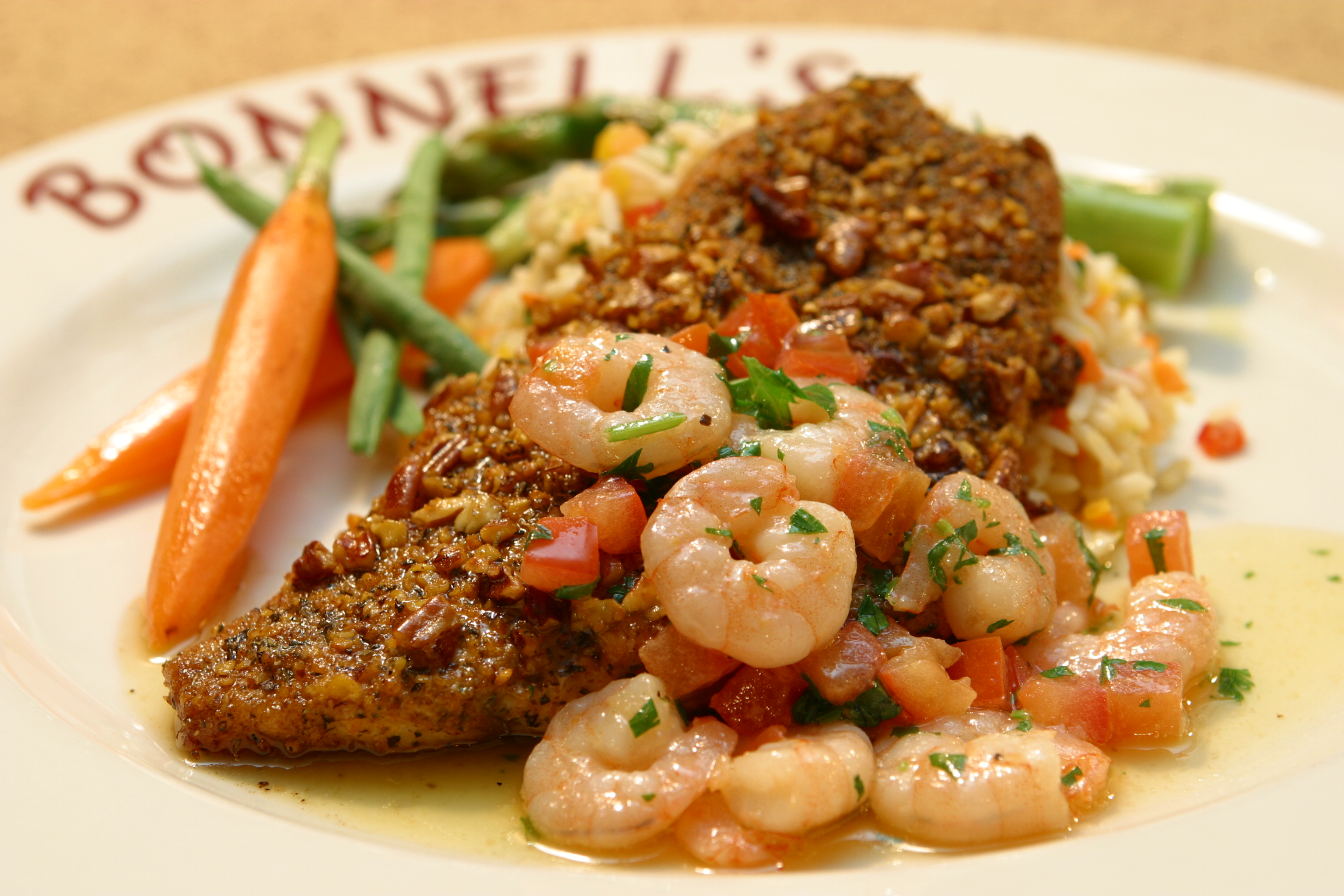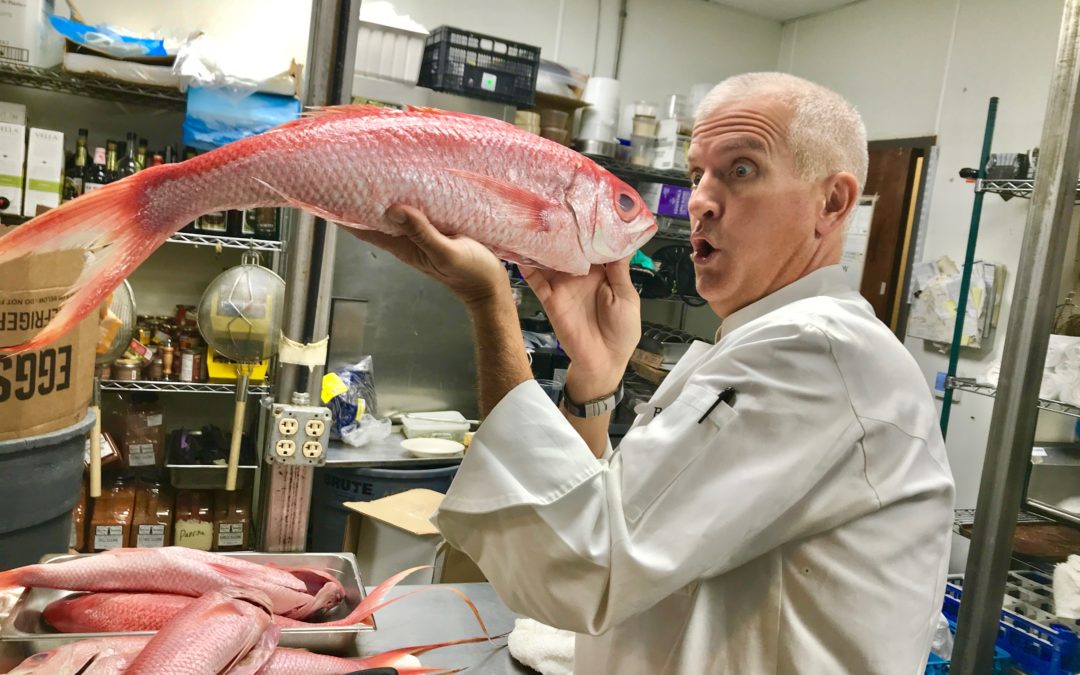Transcribed by James Creange.
Photos by Kelcey Harris.
Chef Jon Bonnell answered this month’s reader questions. To submit your questions for February, leave a comment on this post or send an email to [email protected].
Reader Question: Why do you think some restaurants can’t seem to sustain business while similar concepts are booming?
Jon Bonnell: That’s the magic question that everybody would like to know: why do some make it and some don’t? There’s places that most people really feel are terrible that make it and others that people really seem to love that just go away. It always starts with location, and then the next most important part is food quality and service. It sounds too simple, but if you put out a great environment with good food and good service, people that do come will come back. If you don’t have a good location, they’re not coming in the first place. It’s a tough model. Food in general is just a hard thing to make work.
RQ: My follow up, if you haven’t answered it already, is what are some of the things that you did starting out to make yourself successful?
JB: That’s a tough one. Our first year we were very successful, and our second year we really struggled. When you’re the newest spot in town, everybody is going to come try you. The press is going to write you up. But then the next year, you’re yesterday’s news. One of the best decisions we made from the start was with our advertising budget. We put all of that money into charitable organizations instead of buying TV or print ads. In the fine dining business, we found that that is our crowd. If we went to every charity event and donated something big, we felt like our money went to a better cause while also helping us to market to our crowd. It’s one of the decisions that we thought worked well.


RQ: Do you have any horror stories with rude customers or restaurant critics?
JB: *laughs* Horror stories with rude customers; oh my gosh. The funniest one ever – we had a female customer that managed to get herself so drunk before she showed up. We only served her a couple of drinks before we realized she was a problem, and we called her a cab. In the meantime, she went into the bathroom, and when she sat down on the stall, she slipped and fell off of it. She slid under the partition and stood up in the one next to her which was occupied by an employee. Let’s just say it was a mess – it was disgusting. *laughs* You can’t make that kind of stuff up. As for food critics, one of the worst days ever was when a food critic for the Dallas Morning News gave Waters a one star rating when it first opened. She absolutely just ripped us apart. Luckily food critics don’t have that kind of power around here anymore, and newspapers in general just don’t hold the same weight that they used to. The model has kind of changed, and a heavier chunk of the population is looking at online reviews like Yelp or Tripadvisor. We’re not quite at the mercy of one big reviewer like we used to be, but that’s a struggle that will never go away: chefs vs. food critics. It’s an epic struggle that will never stop.
RQ: What’s your favorite ingredient to work with?
JB: Single favorite ingredient? Man, that’s a tough one. Personally, I can’t ever get enough of crab meat or avocado.
RQ: I’m considering going to culinary school but not sure what I want to do for a career. Do you have any advice?
JB: Okay, so culinary school – if you know what you want to be in the restaurant business and you know you want to cook for a living, experience is required. I think you should start off by getting a job in the food industry in the type of spot you want to be. If you want fine dining or fast casual, get a job in that specific industry first and make sure you love it. If you love it, then you can go to culinary school, and it will be a really big accelerator for your career. If you just want to open a burger joint, you probably don’t need to go to culinary school. It wouldn’t hurt, but it’s a lot of money and time. You’d probably be able to get some experience on the job and figure it out pretty quickly. But culinary school will give you five years of experience in a much shorter time frame. It’s not required but it certainly can help, especially if you want to get into the fine dining field.
RQ: If you didn’t live in Fort Worth, is there somewhere else you’d want to cook?
JB: I love the city of Nashville. I went to college ther, and they are absolutely on fire with their food scene. It’s amazing. And when I lived in New Orleans, I have to say it’s still one of my favorite food scenes of all time. We try to go back every year; I can’t get enough. They have classic restaurants that are timeless. They’ve been there 100 years and are going to feel the same forever, and then they’ve got brand new creative spots that are James Beard Award winners. In terms of culinary, Nashville and New Orleans are definitely spots I’d consider if I wasn’t living in Fort Worth.
RQ: Is there someone on your cooking bucket list?
JB: That’s a tough one. I’d love to go back and find my old instructors from culinary school. I’ll see them on Facebook here and there, but that collection of people that took us in when we were really green and raw would be a lot of fun to go back and cook for. It would be cool to show them what we’ve done with our careers since the 90s.
